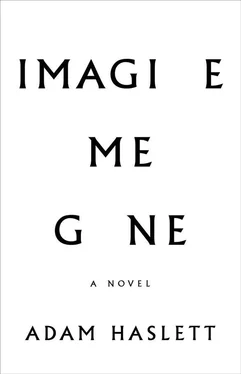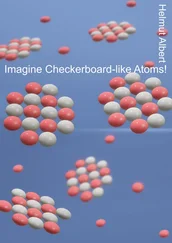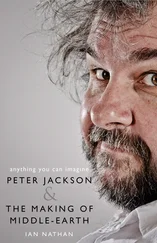She jogs back down to the starting line as I approach, staying focused. I watch as she crouches into position, raises her knee, and then leaps into the lane again, arms swinging, chest forward and head back, shooting past me and over the finish line, jogging from there around the bend before turning once more to walk back to the start. Her breath’s still rapid when she reaches the steps of the bleachers where I’m standing. Every inch of her skin runs with sweat and her face pulses red.
“I told Mom I didn’t need to be picked up from work. She’s checking on me.”
She takes a towel from her knapsack and wipes her forehead. It’s no surprise that boys are attracted to her. There’s a precision to her good looks, a fierceness even. That, and the way she carries herself, with a confidence bordering on aloofness. Which I suppose she got from me. An earlier me. And what do I do now? I steal her confidence back, day by day, cheating her of steadiness and care. Of the three of them, she sees me most clearly, which makes it harder for her because she isn’t protected by distraction. Michael has never been able to bear the tension, so he disappears into other worlds. And Alec is too young to conceive of the situation independent of himself. But Celia’s ways of coping are already the adult ones: discipline, drinking, the search for someone else to love her.
She’s explaining why she didn’t go to work, and how irritating it is that her mother is monitoring her, but none of it matters and I don’t really listen. Which of course she notices, getting more irritated still. Once she’s gathered up her things, we walk together across the field.
Being beside her, close enough to sense the heat flowing from her body, I’m momentarily astonished at her existence — this child of mine. How narrowly we all avoid having never been. Yet even if the knife of chance did happen to cut her into being, I have the passing terror that it isn’t so simple, that in these ultimate matters time is collapsed into a single moment in which you are forever in danger of having the knife tilt the other way, as though, if I am not careful between here and the parking lot, I might go astray and she will be canceled, stolen back by not-being, like a thief grabbing her through an open window. But we make it to the car, and she tosses her bag over her shoulder into the backseat and puts her feet up on the dashboard.
I take us along Green Street past the dense thicket of the nature preserve. When I miss the turn toward the house, she asks where we are going, and I mumble something about the other route, carrying on under the rusting railroad bridge. We drive on in silence for a while, the motion of the air through the open windows offering some relief from the heat.
“How come you don’t have to be anywhere?” Celia asks. “Do you still work for that company?”
There are only woods now on either side of us. The evergreens are thick and the shade between them dark. It is a long, straight stretch and there is something mesmerizing about the lines of the trees reaching out toward each other in the middle distance. She is thinking of Roger Taylor’s firm. He is the one I had to ask for a job when we moved back. I had helped him start his consulting company a decade earlier. He gave me an office and a salary. And it lasted those eighteen months before he politely suggested it might make more sense for me to go part-time, which turned out to mean occasional projects, and eventually none. Margaret says he is ungrateful. The ending of it is so small to me, next to the defeat of leaving Britain in the way I did, that I have trouble thinking about it much.
“Did you hear what I asked?”
“I don’t work there anymore. The fact is, I’ve let you down. All of you.”
“You just missed the other turn,” she says.
I say I’ll go back, but she says it’s okay, she doesn’t mind. I suppose she’s in no hurry to get home. The road winds toward the less inhabited side of the lake. We pass the entrances to two or three mansions, the only houses out here, hidden away up the hillside. I sometimes get this far on my longer walks with Kelsey. It’s the first really quiet place I discovered when we moved here, a beech forest mostly. I pull into a turnout, where the road comes close to the water, and I switch off the engine. A gap in the stone wall leads onto the path around the lake. From here you can see across to the wooded shoreline of the college campus, and the two brick towers stretching above the trees, thunderheads gathering behind them.
“You haven’t let us down,” she says flatly, looking away into the woods. She is being kind. As she was raised to be. To strangers and relatives and those to whom it is good to show care. That is what it has come to. She doesn’t believe anymore that I’m strong enough to bear her complaint or frustration. And I can’t blame her. If she let herself love me, she’d be furious. So she shows me kindness instead. “Did you want to take a walk?” she asks. “Is that why you parked?”
It’s impossible, what I’m trying to do. To say good-bye without telling them I’m leaving.
I follow her across the edge of a meadow, through a patch of swampy ground, and then back under the cover of the trees, as we reach the first point along the shore. Her form is marvelous, the supple muscles of her legs, the gentle curve of her spine, her strong shoulders rolling back, her head balanced. I held her hundreds of times as a girl, tossed her shrieking above her bed, caught her in my arms. I’ve felt the weight of her head on my chest and the warmth of her body under the shelter of my arm. But her body has never struck me as quite the miracle it does now. It seems almost enough to live for, that she came from me and is part of me, and yet as soon as I think this I know again how selfish that is, and disordered, for a parent to need so hopelessly a child still so young.
“I broke up with Jason,” she says over her shoulder, turning only far enough for me to hear her. “If that’s who you and Mom are worried about. That’s why I wasn’t at work. I had to talk to him.” This business of teenagers having personal lives — it’s alien to me. I’ve never known what to say. “You don’t have to worry about me, though,” she says. “They’re not going to fire me. I still have a job.” Taking an offshoot of the path, she leads us to a log bench facing the water and perches at the far end of it, leaning her forearms down on her knees. The air has gone still between the peak of the heat and the break of the rain to come.
“I’m sorry you have to work,” I say, “that there isn’t more money. I know your mother and I don’t talk to you much about my difficulties. It’s a kind of sickness. When that other fellow came to the house this spring, when he was shouting at you, I wanted to help. But I couldn’t. And that isn’t fair to you.”
It’s not until she sits up and wipes her eyes that I realize she’s crying. My words are like knives; they cut into the people I love. It will be worse if you touch her, I think, a worse lie. But I ignore this thought, shifting down the bench to put my arm around her — my daughter — and as I do, she weeps openly, pressing her face against my damp shirt.
I am a murderer. That’s what I am. I am a stealer of life.
A patch of water on the far side of the lake wrinkles under a new breeze, ruffling the black mirror to a scaly gray that shimmers dully under the gray sky. Peter Lorian has a house in the Highlands of Argyll, and standing at his front windows you can see the weather traveling over the hills from the Irish Sea, the bands of rain filling the valley and then the loch and then the fields in front of the house, all before the first drops arrive. You don’t get such views without elevation but here on the water’s edge, the sky and the expanse before us are big enough to see clearly the first motions of the storm: the branches of the trees on the far shore swaying like congregants to a hymn, the gray scales flashing now over the lake. The wind reaches us, cooling the slick of moisture on my face and neck. Celia sits up and wipes her nose. The dropping air pressure seems to slacken the pressure in my head. The whole static atmosphere is coming to life. A roll of thunder echoes in the distance. If it passes off to the south, this may be all we get, a stirring of the elements. We sit for a few minutes in the churn, looking onto the water. The clouds darken and take on a bluish tinge. And now the real wind arrives, carrying leaves and pine needles into the air, making a racket in the trees. We walk back along the path, me in front this time. As we cross the meadow, it flashes before us in the glow of lightning, thunder cracking the air. Loud, heavy drops are slapping our shoulders as we reach the car. We roll up the windows, which steam over almost at once. It sounds as if the roof is being pelted with stones. Sheets of water stream down the fogged windshield. The worst storm I was ever in happened aboard a sailboat in the middle of the English Channel, caught in a squall that nearly capsized the boat, and though Celia and I are perfectly safe here and mostly dry, the force of the rain releases some tiny fraction of that adrenaline that comes with fear of death, and I manage a sigh, so gladdening is the momentary sense of balance between me and the world, the violence everywhere now, unleashed. Celia asks what’s the matter. I tell her it’s nothing.
Читать дальше












